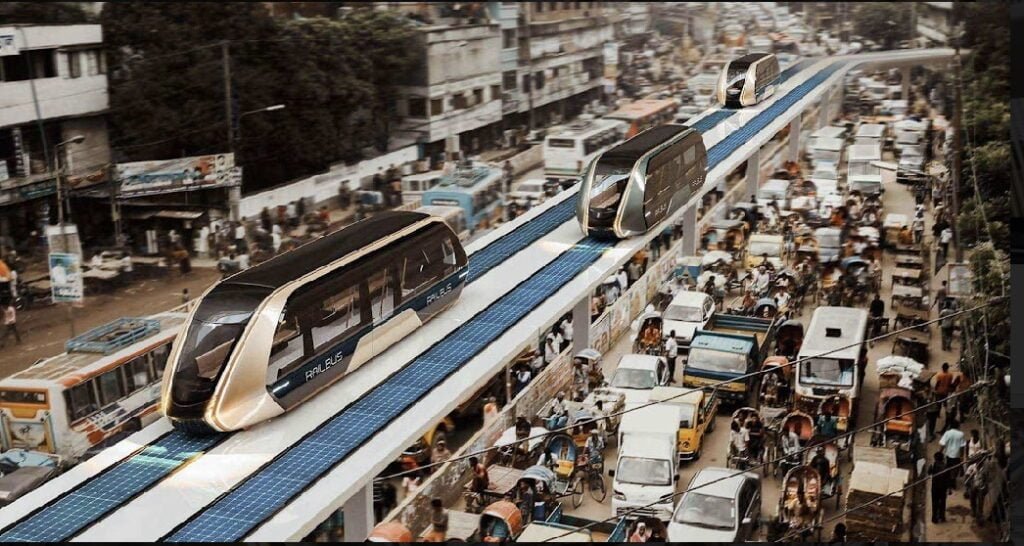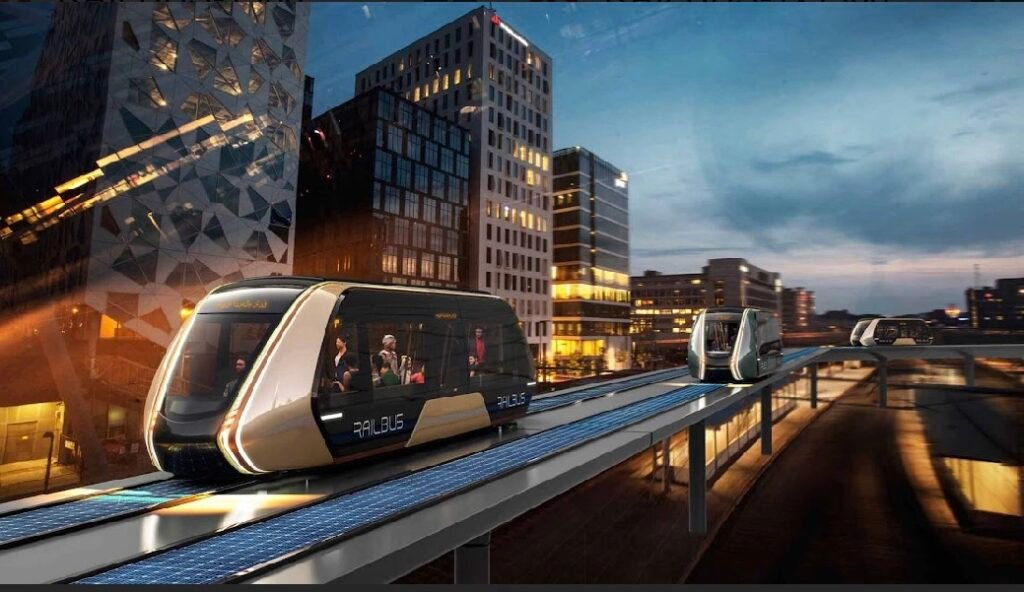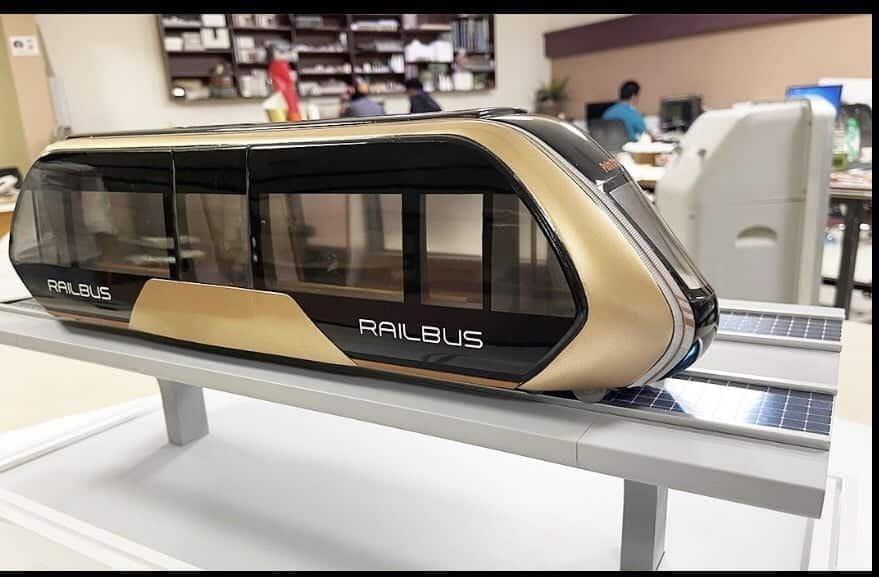RAILBUS has emerged as a groundbreaking innovation set to transform cities around the globe. Pioneering a new era in mass transit, offers a sustainable, affordable, and highly flexible transportation system that could address some of the most pressing urban mobility challenges.
The Future of Urban Transit
RAILBUS introduces ultra-lightweight, driverless electric vehicles that operate on elevated tracks, significantly reducing infrastructure costs. Unlike traditional metro systems, which demand substantial financial investment and lengthy construction times, it’s infrastructure can be developed at less than twenty percent of the cost of a metro system of similar length and capacity. This cost-effectiveness makes it an attractive option for both developing and developed cities seeking to enhance their transportation networks without the heavy financial burden.

Economic Growth and Urban Development
The potential impact of RAILBUS on urban development and economic growth is profound. In cities with overburdened and deteriorating road infrastructures, it provides a much-needed solution to ease congestion and improve mobility. By offering a reliable and efficient transit system, it can boost economic activities, facilitate access to jobs, and improve overall quality of life for residents. For developing nations, RAILBUS could be a catalyst for rapid urbanization and economic expansion, making modern transportation accessible to millions.
Environmental Benefits and Operational Efficiency
One of RAILBUS’s most compelling features is its commitment to environmental sustainability. The system utilizes recycled materials extensively in its vehicle interiors, including seats, panels, roof linings, floors, and door interiors. These components are made from recycled microfiber derived from polyester fibers (such as T-shirts) and PET plastics (bottles, packaging materials, etc.). This recycling process not only diverts waste from landfills but also reduces energy consumption and CO2 emissions by 80% compared to traditional PET production methods.
Operationally, RAILBUS offers significant advantages over conventional transit systems like metros, trams, and Personal Rapid Transit (PRT). Traditional systems require passengers to gather and wait for large vehicles that follow fixed schedules and routes, often leading to longer travel times. On the other hand, it provides frequent, on-demand service with minimal waiting time, taking passengers directly to their destinations faster and more efficiently.

A Versatile and Flexible Solution
The lightweight and modular design of this bus allows it to be easily integrated into diverse urban landscapes. Whether retrofitting into existing city infrastructures or being part of new urban development projects, RAILBUS’s adaptability makes it a versatile solution for various environments. Its elevated tracks minimize the footprint on ground-level spaces, preserving valuable urban land for other uses while still providing a high-capacity transit option.
As cities worldwide grapple with increasing populations and the resultant strain on their transportation systems, RAILBUS offers a visionary solution that combines sustainability, affordability, and operational excellence. By leveraging cutting-edge technology and innovative design, RAILBUS not only addresses the immediate needs of urban transit but also contributes to long-term environmental and economic goals.
With its ability to transform urban transportation and promote economic growth, RAILBUS stands poised to revolutionize the way cities approach mass transit. As more cities adopt this innovative system, RAILBUS will undoubtedly play a pivotal role in shaping the future of urban mobility, making it a cornerstone of modern, sustainable city living.
Related articles:









